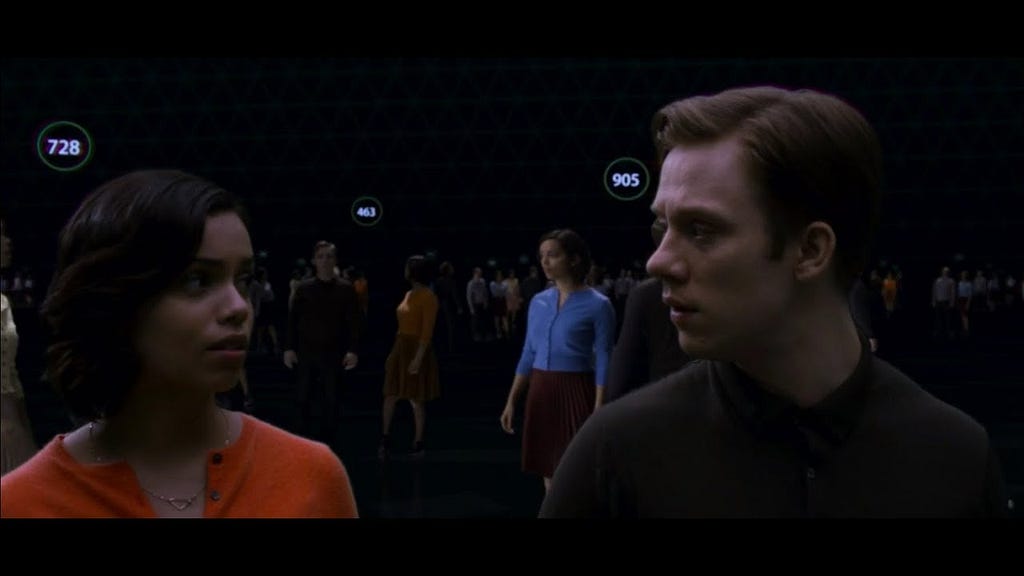
A modern-day Twilight Zone, Charlie Brooker’s science fiction anthology series Black Mirror takes a dark, cynical look at how current and near-future technology is impacting or could impact our lives. It’s a scary, sometimes eerily realistic look at a future that’s just around the corner, and just as you’d expect, there are often disastrous consequences as our best-laid plans are undermined by our darker instincts.
The 2017 episode “Hang the DJ” is a haunting, but also strangely sweet parable of love in the digital age. In this look at the trials and tribulations of online dating, prospective lovebirds go on timed dates of a predetermined length, arranged and monitored by a device called “The Coach.” The dates may only last for a few hours (bad news if you believe in love at first sight) or may stretch over several years (really bad news if you are forced to cohabitate with someone that you hate). It’s all part of a master plan to eventually find your perfect match through an elaborately scripted process of trial and error.
In a moment when our social lives are dominated by instant gratification, where mindlessly swiping on profiles is the best and sometimes only way to meet someone, it makes sense that people would be drawn to an app that does all the heavy lifting for you, determining who you should date and for how long. The Coach eliminates many of the pitfalls or drawbacks of modern dating. No orbiting or ghosting. No false hope or broken promises. No thirst traps. Just a systematic, no-nonsense approach to finding your perfect match.
Or so it would seem. Nothing in the Black Mirror universe is ever that simple. The risk persists that you might be getting psychologically catfished, the proverbial rug pulled out from under you at the last minute; technology that’s supposed to be making your life easier inadvertently makes it more complicated in the long run.
Like many of Black Mirror’s ambivalent technologies, The Coach is ruthlessly rational, in a way that’s at once appealing and repugnant. On the one hand, it’s reassuring to imagine that love is about serendipity, something ineffably human that can only unfold in the moment. On the other hand, that sentiment may be pie-in-the-sky naiveté: a lie that we tell ourselves to conceal the truth. Maybe love can actually be boiled down to a series of 1s and 0s, captured by an algorithm and mass-produced. Computational solutions like The Coach promise efficiency and risk reduction, and thereby encapsulate our contemporary concern about anaesthetization, which Brooker returns to time and again in Black Mirror. Which begs the question: are our dalliances with machine intelligences making us duller, flatter, less open to poignant and fragile possibilities — more like the inner workings of a machine or algorithm?
Considering how many other Black Mirror plots are coming to fruition — the Chinese government’s emerging social credit system that monitors citizens and determines their ability to move through society based on their reputations is basically the plot of the 2016 episode “Nosedive” — perhaps it’s only a matter of time before The Coach is making the rounds in real life, playing matchmaker, erasing the agonies and thrills of apps like Tinder and Bumble, steering us towards our soul mates one awkward first date at a time. But the question remains: is this necessarily a bad thing? If this were to happen, it would be a little bit creepy, there’s no doubting that. But maybe, just maybe, it would also be something worth swiping right on.
This piece is part of Science Fiction Frames: a series of incisive analyses, thoughtful meditations, wild theories, close readings, and speculative leaps jumping off from a single frame of a science fiction film or television show. If you would like to contribute to the series or learn more, email us at imagination@asu.edu.
